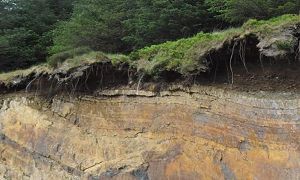CZ Science 0. Undergrad course (7 modules)
Grades 15 -
16
All Disciplines
Curriculum
Educational Objectives
At the end of the course students will be able to:
- Analyze technological advances, breakthroughs in interpretation, and new observations to build their understanding of the Critical Zone in and beyond the class.
- Use a large variety of scientific principles to analyze how Earth's land surface works.
- Apply data sets and observations from multiple existing CZO sites to test ideas and summarize Critical Zone services.
- Describe the Critical Zone as a complex system of interacting regolith, water, air, and life.
Find additional information in the course's Instructor Materials.
Audience
Higher Education
Observatory: National CZO
Author(s): Timothy White (PSU), Adam Wymore (UNH), Ashlee Dere (UNO), Adam Hoffman (DBQ), James Washburne (UoA), Martha Conklin (UC Merced), Susan Gill (SWRC), Editor: David Gosselin (UNL)
Contact(s):
Funding: National Science Foundation–funded SERC InTeGrate project
Related Resource(s):
- CZ Science 1. Critical Zone background
- CZ Science 2. Methods of Critical Zone Science
- CZ Science 3. Critical Zone architecture & evolution
- CZ Science 4. Land-atmosphere exchange
- CZ Science 5. Water transfer through the Critical Zone
- CZ Science 6. Geochemistry & biogeochemistry
- CZ Science 7. Humans in the Critical Zone
Details for this Resource
The body of the course focuses on cross-disciplinary science in the CZ and will focus on the large quantity of interdisciplinary data available from the existing NSF-funded CZOs. This course targets undergraduate students with some science background. Since students may come from different backgrounds (e.g. biology, Earth Science, chemistry, etc.), it is expected that students will have completed at least the general introductory courses of their major and some form of introductory chemistry and physics. Science Education majors and non-majors will also find many aspects of this course useful; however, students should seek instructor approval prior and discuss previous science course-work prior to registration. The course modules also can be used separately in a variety of geoscience related courses including biogeochemistry, environmental geology, physical geology, water resources, and/or hydrology.
Explore Further





